Turkmenabat – Good Bye Turkmenistan
The cheap train ticket price for the 15 hour journey to Turkmenabat (formerly Charjou) placed me in the hard seat wagon of the train. I already expected what the seats to be. As its name, hard seat, the seats were all concrete hard wooden. Just imagine if you have to sit on wooden chairs like in primary school classrooms for 15 hours. After surviving the journey my butt became as flat as the chairs.
But that was indeed what you get with 15,000 Manat (60 cents), incredible price considering the distance.
Now was close to Navruz, known here as well as Bayram (Festival). All people wanted to go home. The seats and sleepers in this train were all booked some days in advance. Many of the people couldn’t get tickets. The train officers allowed people without ticket to be boarded as well, in a limited quota, after all passengers with ticket boarded. It was a chaos. Those passengers without ticket fought hard to enter the train. None of them wanted to be left in the train station, as current taxi price to Turkmenabat was shocking 300,000 Manat (12$) as prices went up astronomically during holidays. Those passengers without ticket fought, kicked, slammed, screamed, to be able on board. Then the officer, cold heartedly, shut the door. The train moved, slowly. About a dozen women were still outside. Some got hysteric as they couldn’t get in. Inside the train, most people were relieved to be able to start the journey peacefully, but a girl, who cried loudly. Her mother was left behind in the station and she was separated from her mother. It was a small tragedy.
The passengers without ticket had no seats. They had to sit on the floor or at the corners or around the toilet. It was like a Chinese train in Chinese holiday seasons. Smelly. Packed. But atmospheric.
Among those passengers I noticed three young soldiers. In Turkmenistan it’s compulsory for every male citizen to serve in military service for two years. These soldiers were now the most visible people in heavily militarized Turkmenistan. And Navruz was happy time for them, as they were allowed to go to their homes and be exempted from their routine duties (including guarding the Turkmenbashi statues in the capital).
One of the three soldiers had very handsome physical appearance. He had black hair, strong and thick eyebrows, and tall nose, and wide, black eyes. His appearance was not Turkmen. Later I knew his name was Kalkali, his father was Turkmen and his mother was Azeri from Azerbaijan. This fact explained his Caucasian feature. He was only 20 years old, but he had strong and defined body. He told me that he was football player and had been to many countries. He mentioned Kyrgyzstan, Uzbekistan, India, Sri Lanka. “See, I also travel to many countries. The countries that you ever been, I also have ever visited,” said him proudly. He was among few Turkmen citizens who knew about Indonesia, and his image of the country was its good black tea.
Kalkali already married. He was only twenty years old but he already had a baby. Kalkali asked for my email address, and suddenly, a girl came and asked my email address as well. Kalkali saw the girl was beautiful. The girl was student from Ashgabat. They exchanged phone numbers after a short chat. Kalkali whispered to me, “Don’t mention anything about my marriage.”
“See! You got married so early and you still flirt around.”
“Hey, that’s life, man!” he laughed.
Kalkali was actually a nice young man. He invited me to stay in his house next time I visit Ashgabat and he gave me his address and phone number, and promised to show me his little baby. About my questions of being a soldier, he chose to give beautiful pictures, but in no way detailed words, like ‘not bad’, ‘acceptable’, etc. He said they got ‘not bad’ salary for being soldiers, which later I found out was about 5 dollars per month.
It was indeed not bad compared to 1 or 2 dollars in Tajikistan.
The train arrived in Charju earlier than it should be. Turkmenabat at 7 morning was freezing as cold winds blew. I was too tired as I couldn’t sleep well during the journey. The seats of 2 passengers had to be squeezed by 3 passengers as the young guy next to me brought his girlfriend as well to share the seat. The guy then slept soundlessly in my hug (why should I hug him? Because there was no space for my arm). Meanwhile I had to survive against the stinky socks of the passenger sitting in front of me and threw his feet just next to my face. The seat was hard but it was not big deal as I was used to hardcore trips in Chinese trains. It was the smell of the socks which I couldn’t stand.
From Turkmenabat it was another 45 minute taxi journey to the border. As oil price was cheap in Turkmenistan, taxi cost was merely 1$ for the trip.
After long queue, it was my turn to be allowed to enter the immigration hall.
“You came from Ashgabat, right?” asked a police.
“Yes”
“You came by train, right?” asked him again.
“Yes”
“You came by normal wagon, hard seat, cost 15,000 Manat per seat, right?” interrogated him.
See! They were very well informed. They knew every single detail of mine, even how much I paid for my train ticket. I wondered how many percent of the population worked as intelligence agents for the country.
Exiting Turkmenistan was more difficult than entering it. The police on customs checked my luggage, and my bag was completely emptied. I brought enormous number of books with me. Unlike other border checks which always skipped the books, here I was asked what every book contained.
“We are afraid you bring dangerous books,” said one of the police.
Dangerous books they meant were religious books, especially Islamic books. I had a book of Arabic Language course and a book of Iran history in Farsi Arabic script. These books slowed down the process. They said they needed to see the contents first. But they were happy that there was Ruhnama, the Turkmen Holy Book, among piles of books of mine.
“Why you read so many books?” asked the police.
“It is good for my head,” I answered.
Then they asked me to show all photos in my camera. Luckily in my camera there was an option to jump every 20 photos so they didn’t see all of the photos. Otherwise checking those 200 photos would take me hours.
I was tired anyway.
After the custom check, Turkmen passport control in comparison was extremely efficient.
The Uzbek border was located 1 km away. The passport control officer spent so much time examining every page of my passport, checking with ultraviolet lamp, and then checked every page with sun light. I thought he suspected my passport was fake. But he turned up saying, in Tajik, “Your passport is very beautiful!”
The lady in Uzbek customs, in the other hand, was so busy in chatting with me, asking this and that unrelated questions, while other local Uzbek and Turkmen citizens were just waived to pass through the customs check. Turkmen citizens living in border area were allowed to visit Uzbekistan without visa for 3 days. More than that they had to apply for visa which cost 1 US$ per day. Everyday there were many people crossing this busy border, so the customs lady-in-charge knew most of them personally. She didn’t know me, of course. So I had to show my luggage. She was only interested at what medicines I had with me and whether I brought any religious books.
Due to tedious checks on both sides of the border, when I finally passed the border, there were nobody to share vehicles to Bukhara. I realized now I returned back to normal world. From a country where a little gasoline was only 1 cent – even cheaper than water, I came to a country where gasoline cost 80 times more expensive. A seat in taxi (with nobody to share with) to Karakol cost me 8$. With such amount of money in Turkmenistan I could ply Ashgabat – Turkmenabat for 14 times.
After 3 hour journey with taxi, bus, and taxi again, I arrived – exhausted – in a friend’s house in old quarter of Bukhara.
Navruz was coming, and all people were busy for celebration.
Happy Navruz.

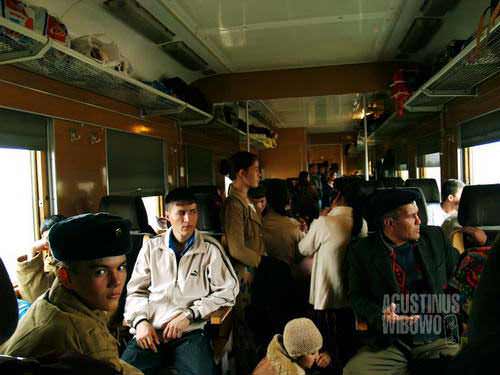
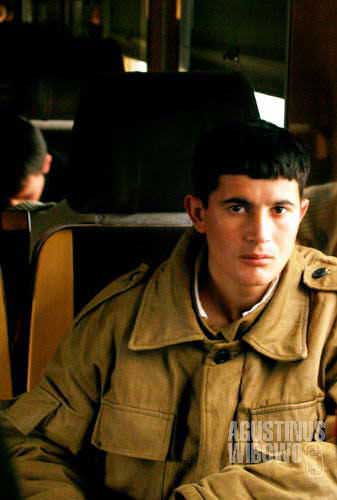
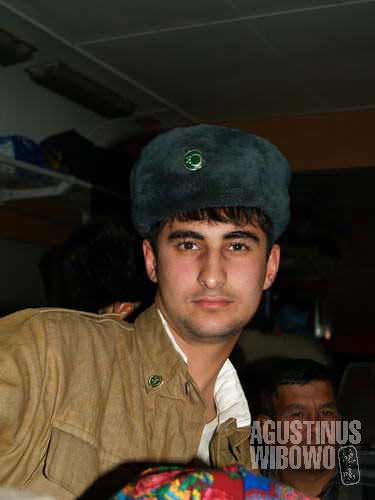
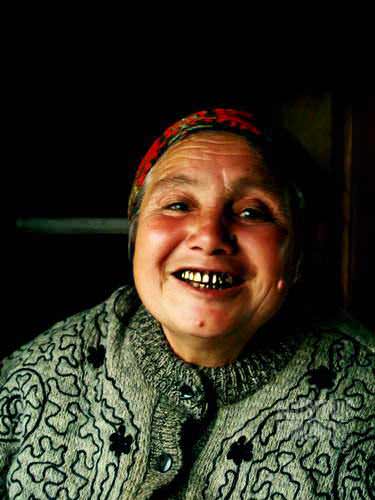
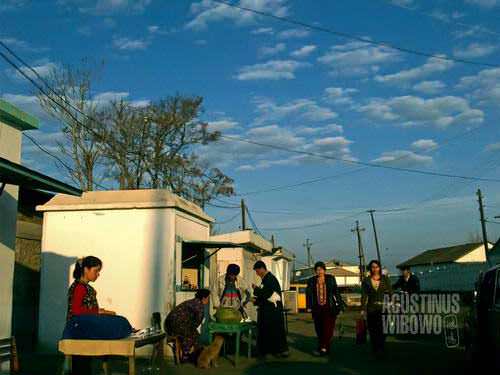





Hebat nih polisinya kemampuannya setingkat BIN 🙂
i was thought any transportation in Turkmenistan can be used for free. is not it socialist things? hehe